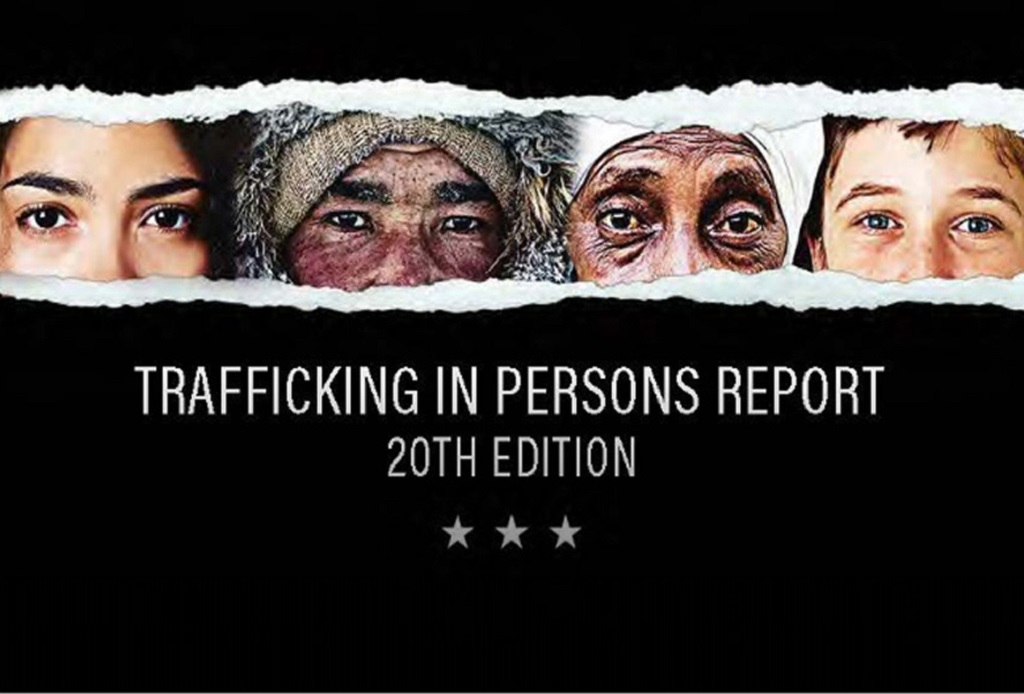BAHRAIN has maintained its top ranking, for the third consecutive year, in combating human trafficking, according to an international report.
The US State Department’s 2020 report on Trafficking in Persons (TIP) has placed Bahrain in the Tier 1 status, – the only GCC nation on it – recognised as being fully compliant with the Trafficking Victims Protection Act’s minimum standards for the elimination of human trafficking.
The report praised the kingdom’s increased trafficking investigations, prosecutions and support to victims.
Documented
It documented that the Interior Ministry had probed 41 potential trafficking cases (in which 60 arrests were made) from April 2019 until March this year of which 29 were for sex trafficking and 12 were forced labour.
In the period under TIP review, Bahrain convicted 53 people for alleged sex trafficking crimes, seven related to alleged forced labour, up from nine and zero, respectively in year before.
“The government convicted 14 individuals for sex trafficking under the anti-trafficking law and sentenced them to between three and 15 years’ imprisonment, plus a fine in accordance with the law,” said the report.
“It convicted 23 sex traffickers and administered similar sentences as in the previous reporting cycle.”
The report also mentioned that authorities had investigated a Bahraini police officer for alleged complicity in a potential trafficking case.
He was among the six individuals arrested in the case in which Bahrain and the Philippines government worked together.
The case involved two Filipinas who arrived in the country under the false pretence of a good job, but were forced into sex trafficking.
The second sex trafficking case mentioned in the report was related to investigations being carried out between Bahrain, Saudi Arabia and Kazakhstan.
“The government identified and provided robust protective services for 39 adult female trafficking victims (one of which was forced labour), markedly up from the 12 it assisted during the previous reporting period.”
The victims were from Thailand, Indonesia, India, Kazakhstan, Russia, Egypt and the Philippines.
The 39 trafficking victims stayed at the Labour Market Regulatory Authority (LMRA) Expat Protection Centre in Sehla wwhere they received food, medical, counselling and were even placed in jobs in Bahrain.
The document added the government paid all confirmed trafficking victims with monthly compensation (BD93) for those who remained in Bahrain during the court trial.
Standards
Manama has constantly moved up in the annual assessment, from being in Tier 3 in 2011 to maintaining a Tier 1 rating for the past three years.
The report categorises countries into four sections as mandated by the Trafficking Victims Protection Act (TVPA), which is the American law against human trafficking.
Tier 1 nations fully meet TVPA standards, while nations on the Tier 2 and Tier 2 Watchlist do not fully comply with the minimum standards for the elimination of trafficking, though making significant efforts to do so.
Countries not complying with the minimum standards are placed in Tier 3 and subjected to certain US sanctions.
“The government of Bahrain fully meets the minimum standards for the elimination of trafficking,” said the report.
“The government continued to demonstrate serious and sustained efforts during the reporting period; therefore Bahrain remained in Tier 1.”
It noted the LMRA efforts to combat human trafficking that included plans to open a centre of excellence as well as a government-funded training programme that helped 230 Bahraini officials.
The report lauded the flexi work permit that was availed by 27,660 expats of different nationalities during the reporting period.
It stated that nearly 5,500 expats opted for the self sponsorship permit.
In addition, the report said Bahrain last year shut down a recruitment agency and revoked its licence for contravening the labour law.
Seven other agency licences were cancelled for non-compliance with LMRA regulations.
The report explained that LMRA’s enforcement and inspection department employed 70 inspectors who are responsible for worksite checks.
“The report highlights our strong sustainable efforts to combat human trafficking and we at the LMRA have dedicated four departments for serving, protecting and assisting migrants,” LMRA chief executive Ausamah Al Absi told the GDN yesterday.
“I would say about 22 per cent of our staff work day in and day out to serve and protect the migrants.
“There is always room for improvement but we will continue to plan and move ahead to combat human trafficking at different levels.”
The report recommended that authorities actively enforce labour law protection for domestic workers, deal with forced labour cases involving passport retention, non-payment of wages, and other indicators, as trafficking crimes.
Enforce
It further called upon the government to develop the Wage Protection System to cover all migrant workers, under which mandatory
transfer of salaries ought to be done in bank accounts.
The report highlighted the presence of about 84,000 domestic workers in Bahrain, 61,000 of them female.
It mentioned the increase in the number of domestic workers from African nations (Senegal, Cameroon and the Gambia) arriving in the country who are vulnerable to labour exploitation and human trafficking as these countries had no diplomatic presence in Bahrain.

